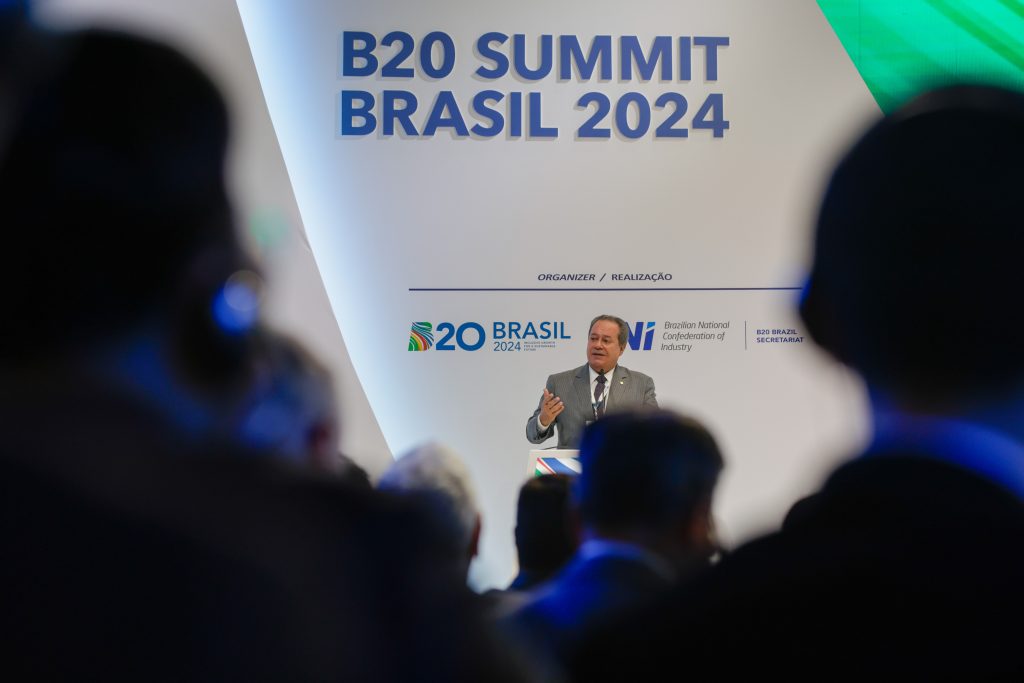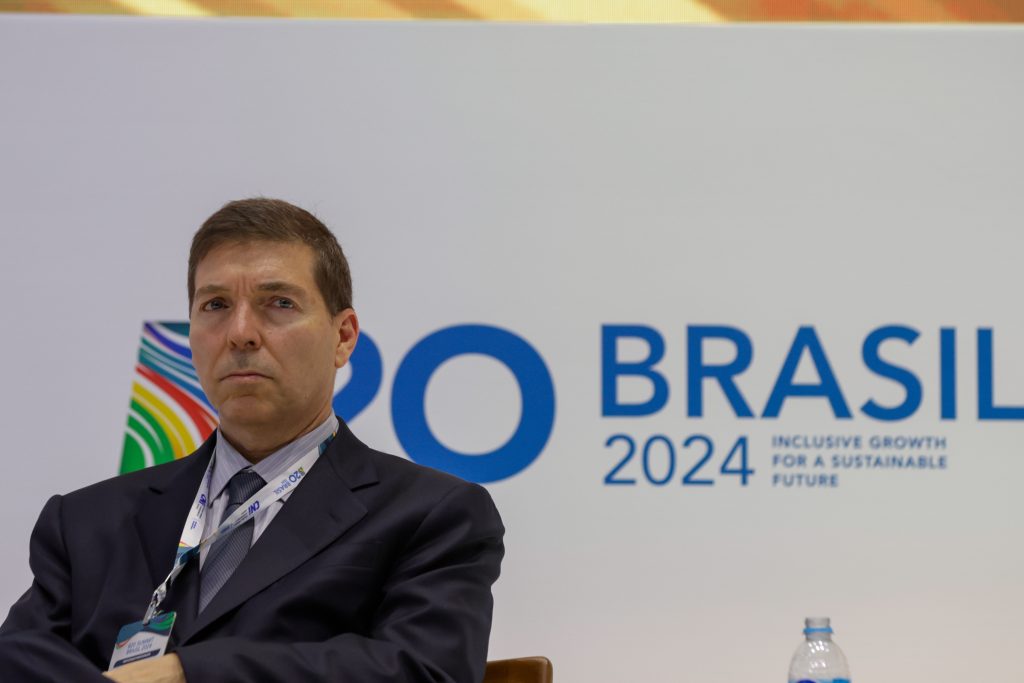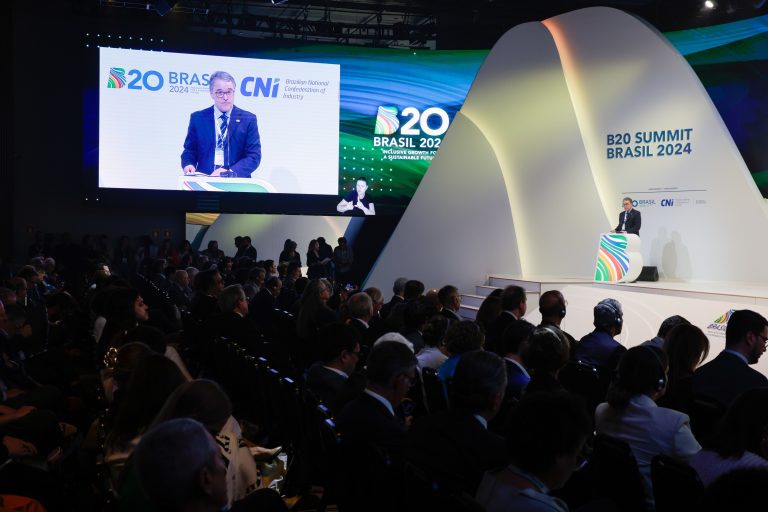São Paulo – Accelerating the global transition to net-zero carbon emissions is one of the key principles in the recommendations that the G20’s private sector has formulated for their countries’ leaders. Businessman Dan Ioschpe, chair of B20 Brazil, presented these principles during the opening of the B20 Summit, which began on Thursday (24) in São Paulo. The summit positions Brazil as a potential global leader in the low-carbon economy.
The B20 brings together representatives from the private sector of G20 countries and is holding its summit in Brazil as the country currently holds the G20 presidency. The group’s heads of state will have their summit later this year, in November, in Rio de Janeiro, and it is for this meeting that the private sector of these nations, led by Brazil, formulated recommendations.

The guiding principles that underpin the recommendations are combating hunger and inequality by promoting inclusive growth; accelerating the transition to net-zero emissions by fostering a just energy transition; boosting productivity through innovation by integrating technology and competitiveness; strengthening global value chains by ensuring the resilience of global production systems; and valuing human capital with a focus on talent development and social inclusion, according to Ioschpe.
“In a challenging global scenario, we have overcome barriers and brought concrete solutions to some of the most urgent problems facing the global economy and socioeconomic development,” said the B20 sherpa, emphasizing that the recommendations align with the priorities of the G20. “We believe these proposals have the potential to transform global economies by promoting a more just and sustainable development,” he said.
Brazil plays a prominent role
Brazilian business leaders who opened the Summit placed Brazil in a prominent role in the global transition. “Brazil, with its enormous potential for solar, wind, and biofuel energy production, has the ideal conditions to develop innovative technologies and businesses in this area and to be one of the world leaders in the low-carbon economy,” said Ricardo Alban, president of industry group CNI.

Also the chair of the Advisory Council of B20 Brazil, Alban said the country and its private sector are prepared to make significant contributions to the global debate. “The advisory council I chair has guided discussions in areas where Brazil can help solve global problems,” said Alban. “That’s why the advisory council has addressed decarbonization, bioeconomy, and the development of the carbon market as essential elements to enhance Brazil’s competitive insertion in the global market,” he added.
The president of São Paulo industry group Fiesp, Josué Gomes, also emphasized Brazil’s prominence on the world stage, hosting major events such as the B20 and G20 summits, the BRICS summit in 2025 when the country will also chair the group, and the United Nations Climate Change Conference (COP30) in Belém, Pará state, also next year. “As the president said when he took office, Brazil is back,” Gomes said, echoing the words of President Luiz Inácio Lula da Silva.
B20 in São Paulo
On its first day, over 1,300 people attended the B20 Summit at the Monte Líbano Athletic Club. Also present at the opening of the meeting were Jorge Lima, the Secretary of Economic Development of the State of São Paulo, and Felipe Hees, the G20 Brazil sous sherpa at Brazil’s foreign ministry. Two companies from Arab countries, Saudi Aramco and SABIC, were the master sponsors of the event. The Arab-Brazilian Chamber of Commerce (ABCC) participates in the B20 Summit with its leaders and executives, while also supporting Arab participation.
Read more:
BRICS calls for UN reform and a new global order
Translated by Guilherme Miranda




